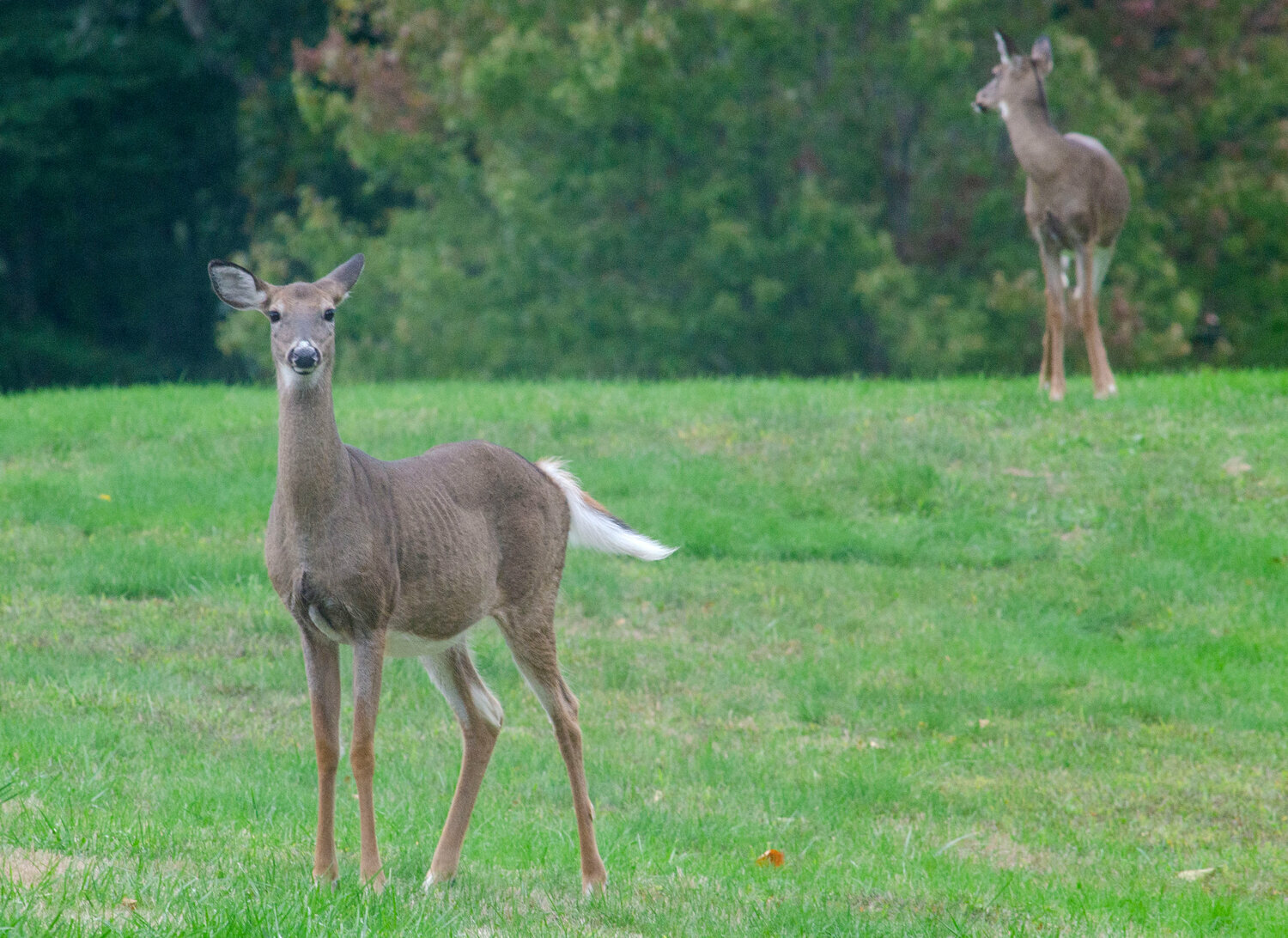Animal rights group targets hunting program in Bristol
Defenders of Animals hopes to earn enough support from enough Bristol voters to re-examine the Town’s deer hunting cooperative through a ballot referendum, critiquing the fledgling program as unsafe, inhumane, and unscientific.
This item is available in full to subscribers.
Please log in to continue |
Register to post eventsIf you'd like to post an event to our calendar, you can create a free account by clicking here. Note that free accounts do not have access to our subscriber-only content. |
Day pass subscribers
Are you a day pass subscriber who needs to log in? Click here to continue.
Animal rights group targets hunting program in Bristol
A press release sent out by a Cranston-based animal rights organization describes how they will seek to gain support from enough Bristol voters to re-examine the Town’s deer hunting cooperative through a ballot referendum, critiquing the fledgling program as unsafe, inhumane, and unscientific.
“We believe wildlife biologists should be coming up with scientific and humane methods to control deer populations,” said Dennis Tabella, Director of Defenders of Animals, Inc., who sent out the press release. “Because if the solution is killing, then where are we? You’re coming up with the same solution a caveman would have come up with.”
Tabella, who said he once lived in Bristol for three years while attending Roger Williams, said that Defenders of Animals had received around a dozen complaints from people in Bristol concerned about the program, which initiated their analysis of the situation.
“The property being used now for bow hunting is all Town property. None of it is state property or federal property,” he said. “We felt, based on complaints and concerns we were getting, that Bristol voters should have a say, not just at a Town Council meeting, but at the voting booth.”
The press release outlines the argument Defenders of Animals is putting forth — which is that hunting has not actually helped curb deer populations in other Rhode Island municipalities that have enacted it; that traffic incidents actually become more likely in places with hunting because it coincides with the deer mating season; and that utilizing a method of targeted sterilization has resulted in better outcomes in multiple places that have tried it around the country.
“Every single town or city that allowed deer hunting to start up, it has never stopped, it has only increased,” Tabella said. “Block Island, Prudence Island…they’ve done nothing but increase the number of deer that can be killed every year, and it’s done nothing but perpetuate the number of deer that need to be hunted because the numbers never actually go down.”
Meanwhile, he argues, communities like Cincinnati, Ohio, Cayuga, N.Y., Fairfax, Va., Bethesda, Md., and San Jose, Calif. have each seen 19%, 34%, 20%, 47%, and 37% drops in the deer population respectively after enacting sterilization methods.
“It’s an expensive proposition, but it works,” he said.
On the expense, a search online revealed the aforementioned program in Cincinnati worked out to costing around $1,000 per deer. A report from Ann Arbor, Mich. revealed that while a sterilization program there resulted in an overall 47% reduction in deer density, it worked out to around costing $1,185 per deer on average across all areas in the test group.
“Given the cost and experience required for application, the activity of sterilization is not meant to be a widespread population management tool for game species,” the report states in its executive summary. Though it did say sterilization could be utilized for spot treatment of other invasive species, such as wild pigs.
But Tabella argued that hunters, which he claimed represented less than 3/10 of one percent of the population of Rhode Island, and therefore less than 1 percent of the population of Bristolians, should not get to dictate whether or not people feel safe venturing into their local woodlands for a walk.
“People in Bristol that don’t hunt, representing over 99% of the population of Bristol, can’t safely walk through those areas in the woods because they have to worry about the hunters in there, if they have kids or dogs,” he said. “We want to give Bristol residents an opportunity to have a say about what’s happening on Town property in Bristol.”
Tabella said that the first step towards that goal is to rally enough support to gain 150 signatures, which would trigger the Town Council to examine the proposed ordinance banning all hunting on public property in Bristol. If they vote that down, Tabella said they would try to rally the 1,000 signatures necessary to create a ballot referendum possibly as early as the 2024 Presidential Election.
“We just need to let voters in Bristol decide,” Tabella said.






